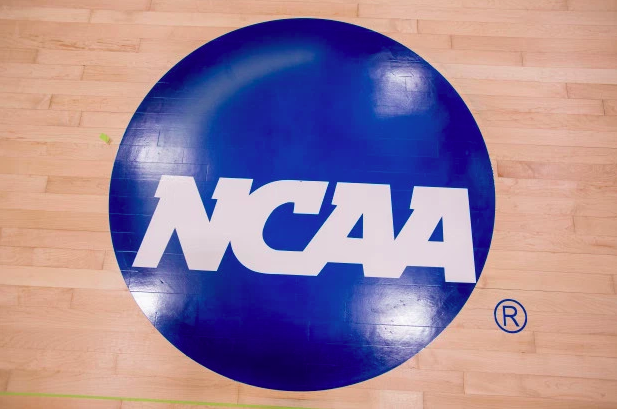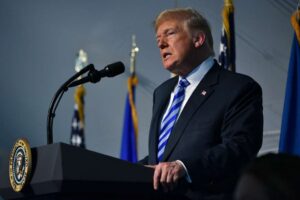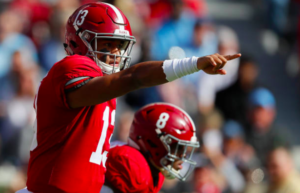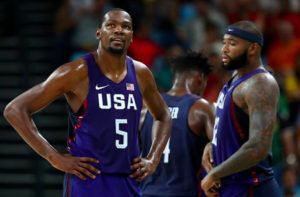Back in late September, there was a bombshell FBI report about six major college basketball programs hit with accusations of bribery and fraud. They included Auburn, Louisville, Arizona, USC, Oklahoma State, and South Carolina. Now, there is a new report that the material obtained threatens the fundamental structure and integrity of the sport, as there’s potentially as many 50 college basketball programs that could end up compromised in some way.
I read the report, and ultimately, the FBI’s complaint is that major college basketball players are getting paid under the table, because this is somehow a shock.
First of all, let me take the FBI report and contextualize in terms that “regular people” can understand. The FBI often uses language that make a situation sound worse than it really is. Here’s a perfect example from the FBI report:
“First, GATTO, CODE, DAWKINS AND SOOD worked together to funnel $100,000 from Company-1 to the family of a high school basketball player (“Player-10”) in exchange for Player-10’s commitment to play at an NCAA Division I University whose athletic programs are sponsored by Company-1 (“University-6”), and in further exchange for a commitment from Payer-10 to retain DAWKINS and SOOD, and to sign with Company-1, once Player-10 joined a professional basketball league.”
So, to put this in the plainest of terms, this was a consensual deal between two Adidas executive, (Gatto and Code) Dawkins (who’s just known as a dealmaker), and a recruit, that he will commit to an Adidas-sponsored athletic program and will then sign with Adidas once he goes pro. When you put it in those terms, it doesn’t seem like it’s as big of a deal now, right?
*I love how the FBI is using the word “funnel,” like they’re talking about a drug cartel.
Here’s the legal definition of fraud
A false representation of a matter of fact—whether by words or by conduct, by false or misleading allegations, or by concealment of what should have been disclosed—that deceives and is intended to deceive another so that the individual will act upon it to her or his legal injury.
Based on the legal definition, what went on wasn’t fraud; there also aren’t any victims in this situation. This is just a consensual deal that sent money from a corporation to a star athlete. If two people agree to a deal without any victims, how is this some major scandal that needs to involve the Feds; it will obviously involve the NCAA, but why should the Feds care? Furthermore, does anybody actually care if star college basketball players are paid under the table? As long as there aren’t any victims involved–which according to this report, there aren’t any victims–this is just a waste of time and resources for the FBI.
Moreover, why is it OK for NCAA athletic programs to be sponsored by companies, but it’s not OK for athletes to make money off of it? It’s hypocrisy at the highest order. If the NCAA values amateurism so much, wouldn’t they ban this sort of sponsorship because it can easily lead to recruits making deals with these companies?
Yes, this is going to result in program-shattering sanctions from the NCAA. Clearly, these are against NCAA rules and coaches involved will probably lose their jobs and the universities will be punished. However, from a legal perspective, this makes no sense. The law of the United States isn’t the same as NCAA rules and I don’t see anything in this report that constitutes fraud from any parties.
The fact that an institution like the NCAA exists the way that it does is mind-blowing.
The NCAA is the most perfect example of institutional Marxism in the United States. This is the one institution in American life that tries to control the money individuals make that have absolutely nothing to do with the NCAA, or taking money from the universities. I agree that college athletes getting guaranteed salaries is silly. One, it’s not legally possible because of Title IX (but that’s a discussion for another article) and two, few college athletes actually produce a boatload of money for the university to the point where they are worth guaranteed salaries. I don’t think college athletes should be treated as government employees.
Another argument I hear is that many of these athletes come from poor economic backgrounds, but that argument is also weak. Whether they come from wealthy backgrounds or dirt poor backgrounds, this has nothing to do with whether or not they should be given salaries for their performances.
My stance on this is that players should be allowed to be paid, which is not a guarantee that an athlete gets paid, but the NCAA stays off their tails if they can reach a deal with whoever they want. If the players are getting paid from different parties, such as sponsorships from corporations, why should that matter? We’re a nation that believes in rugged individualism and the idea that everybody should be able to make as much as money as he or she possibly can. And then you have the NCAA, which institutionally enforces watered down collectivist rules that control the money athletes are allowed to make that otherwise would have nothing to do with the university or the NCAA. The NCAA needs to scrap improper benefits rules. In no other area of American life can individuals get penalized for improper benefits. It doesn’t happen, because the concept of an “improper benefit” is absurd.
Moreover, and I know this sounds like a long shot, the NCAA needs to change what they value. The NCAA claims that one of their values is “amateurism.” In what other area of American life is amateurism ever a value? Nobody values amateurism, the only institution in America that places virtue on amateurism is the NCAA.
In short, improper benefits rules are forced amateurism, and forced amateurism always leads to a black market. These athletes know their market value and companies and agents know what they can make off of these athletes.
Another solution is for the NBA to amend the rules and allow high school basketball players to get drafted out of high school. We all know the real reason the NBA has these rules in place. It’s not because they value the education of the players. That’s a load of crap. If they really did, they would make them complete college. What do you actually have to gain educationally from completing one year in college anyway? Nothing. If 18-year-olds can fight in the military, there’s no reason why they can’t play in the NBA.
The real reason this rule exists is because it can be used as a free minor league for the NBA. 18-year-olds are certainly capable of playing in the NBA and they’ve done so for decades. If the NBA just let players get drafted out of high school, the issue of corruption and the black market for the biggest high school basketball players would largely diminish. Furthermore, isn’t it a bit strange and inconsistent that basketball stars coming out of high school aren’t allowed to market themselves, (unless they choose to play overseas of course) but then a year later, when they’re 19, they’re allowed to make seven figure salaries? Like there’s some profound difference between being 18 and being 19? I know from personal experience, I was just as immature at 19 as I was at 18, and I’m sure virtually all of these basketball stars are the same way.
These restrictive rules are the reason why college basketball is in the worst shape of any major sport in the United States, which is that all the best players don’t even want to be there. They have the same mentality as people on airplanes. They have to be their but they can’t wait to get off. Can any industry actually survive if the most prominent employees don’t want to be there? Imagine the NBA if LeBron James, Kevin Durant, and James Harden all had a foot out the door or the NFL if Aaron Rodgers and Tom Brady couldn’t wait to leave. Well, that’s college basketball in a nutshell.
Nonsensical and restrictive rules always lead to massive corruptions and cheating across the board, which explains why according to a source, “You might see Tennessee-Chattanooga as a No. 2 seed.” I’m not saying that what one source says is 100% true, but that’s an alarming statement which speaks volumes about the NCAA and the corruption that takes place inside college basketball, which can be attributed to the NCAA’s overly stringent restrictions.
Maybe the FBI should get their priorities straight
Maybe, just maybe, the FBI should spend more of their time and resources on finding and hunting down potential school shooters about whom they were warned instead of worrying about the money 18-year-old basketball stand-outs are making. What’s more important?
What should the NCAA do?
They should probably just change their rules and stop talking about amateurism the way the bible talks about virginity. I’m not saying I think this will happen any time in the near future, but allowing players to market themselves however they want outside of their institutions would solve this problem.







